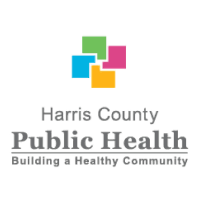HCPH Encourages Our Community to Take Health Into Their Own Hands
November is American Diabetes Month and Harris County Public Health (HCPH) wants to encourage our community to take charge. Diabetes is the seventh leading cause of death in the United States, according to the Centers for Disease Control and Prevention (CDC). Risk factors and complications among individuals with diabetes have increased post-pandemic.
According to the CDC, in the United States, more than 37 million adults have diabetes. One in five adults with diabetes is not aware that they have it. According to HCPH’s Leading Causes of Death in Harris County 2016-2020 report, 12 percent of Houstonians have diabetes, which is higher than the national rate of 10 percent. HCPH encourages our community to take health into their own hands through awareness, detection, and management.
Diabetes is a condition that affects how the body turns food into energy. The body breaks down most of the food into sugar (glucose) and moves it into the blood. When the blood sugar goes up, it tells the pancreas to release insulin. Insulin is the key that lets the sugar go from the blood into the cells for use as energy. Diabetes happens when the body doesn’t make enough insulin or can’t use it as well as it should. This causes too much blood sugar to stay in the blood. Over time, that can cause serious health problems, such as heart disease, vision loss, and kidney disease.
There are three main types of diabetes:
- Type 1:An autoimmune reaction that causes the body to attack itself by mistake, and this damages the part of the pancreas that makes insulin. It is less common than type 2 and there is no way of preventing it, but it can be treated.
- Type 2:The body does not use and cannot produce insulin well causing high blood sugar.
- Gestational diabetes: Similar to type 2 and happens during pregnancy.
Type 2 diabetes, the most common type, symptoms often take several years to develop and can go on for a long time without being noticed. Because symptoms can be hard to notice, it’s important to know the risk factors and to see your doctor to get your blood sugar tested if you have any of them. These risk factors include:
- Have prediabetes, which is when blood sugar levels are higher than normal, but not high enough for a type 2 diabetes diagnosis
- Are overweight
- Are 45 years or older
- Have a parent or sibling with type 2 diabetes
- Are physically active less than three times a week
- Have had gestational diabetes or given birth to a baby that weighed over nine pounds
- Are an African American, Hispanic or Latino, American Indian, or Alaska Native person
There are many lifestyle changes that help prevent or delay type 2 diabetes. Maintaining a healthy weight and lifestyle, getting more physically active, and eating a healthy and balanced diet all help prevent or delay type 2 diabetes.
If you have been diagnosed with diabetes, it is important to choose a healthy lifestyle with a good diet and physical activity to manage it. Eating regularly and consistently helps with blood sugar control, aim for three meals with healthy snacks in between. If you have risk factors, please make sure to visit your doctor right away and get tested. For more information on how to prevent diabetes, please visit HCPH’s Diabetes Prevention Program website or call 713-274-8546.


